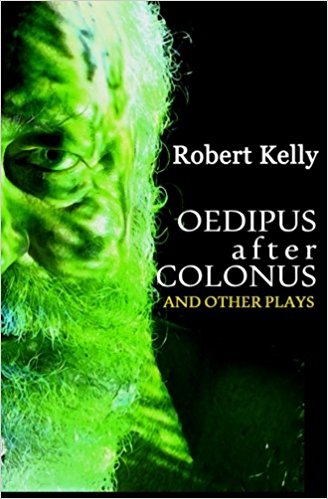

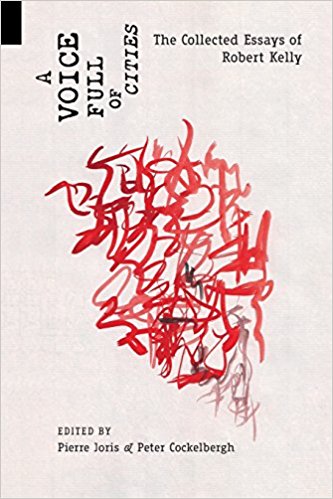
A Voice Full of Cities: The Collected Essays of Robert Kelly
A Voice Full of Cities: The Collected Essays of Robert Kelly
It is no exaggeration to suggest that Robert Kelly may well be America’s most prolific poet, and certainly one of the most singular and ceaselessly innovative poets the country produced in the 2nd part of the past century. To date, he has written more than 70 books of poetry and fiction – books that reveal a breathtaking range, from freshly minted trobar clus and contemporized sonnet forms, to epic-length narratives and non-narratives – such as Axon Dendron Tree, The Common Shore, The Loom, or the first two installments of a recent trilogy, Fire Exit & Uncertainties. Just as compelling are the volumes of shorter lyric forms, such as Finding the Measure, Songs I-XXX, Not this Island Music, and Lapis, or his even more experimental work, such as Sentence, The Flowers of Unceasing Coincidence, or his writing-through of Shelley’s poem, Mont Blanc. The deeper unity of the work is unavoidably present in the voice that underlies the multiplicity of forms. As Guy Davenport wrote: “A Kelly poem is a Kelly poem. It dances in his way, sings in his intonations, insisting on its style. No American poet except perhaps Wallace Stevens has his sense of balance in a line. […] Kelly has nothing to hide: the untiltable balance is there to begin with.” Less visible than the poetry, but certainly no less important, incisive, worth preserving & circulating anew, are the trove of essayistic materials disseminated throughout numerous small & not so small magazines of the second-half of the 20th C. The out-of-print 1971 In Time was Kelly’s sole published book of essays properly speaking, even though he has been writing on his (& others’) poetry & poetics since the early 60s. Long over-due, the present volume, A Voice Full of Cities, collects for the first time Kelly’s essays, statements, & other writings on poetry & poetics, making available a vast array of difficult to obtain works. The editors’ aim was to insure that – in Robert Kelly’s own words – “the fifty years of thinking around the fifty years of making won’t get lost, and making and thinking will be seen as one thing.” A forthcoming companion volume from Contra Mundum Press, A City Full of Voices, will present critical essays on Robert Kelly’s work by a wide range of contributors.
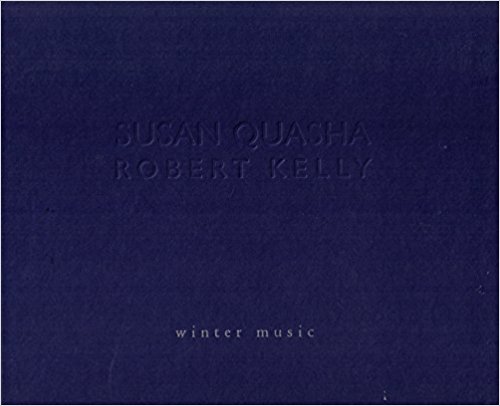
Winter Music
Winter Music
The first in a new series of T Space Editions, WINTER MUSIC is a collaboration of artist/photographer Susan Quasha and renowned poet Robert Kelly. The 40 photos vibrantly liminal oscillations between colors almost indistinguishable from light and their origins in earth/sky matters are so eerily well printed by the justly famous Avery Group (at Shapco Printing) as to seem original to each page. In poems that powerfully embody the excitement of seeing a world for the first time, Kelly responds as he says to her body of luminous lyrical enactment, free of narrative, almost devoid of dependency on subject, let alone the human subject, and yet which well over with emotion, desire, joy in beholding. Using only the image full-formed in the camera, with no subsequent manipulation, she gives us a precious thing, a chance to see with her seeing, not just what she saw. We become the agent of her investigation into the colors of our attention.
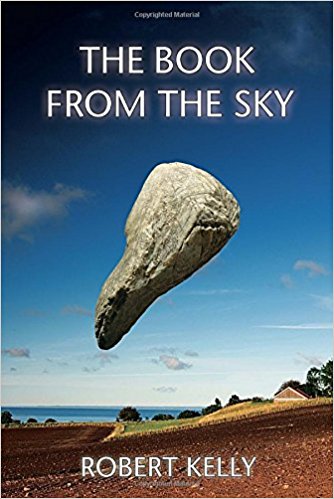
The Book from the Sky
The Book from the Sky
“I’m on my way back. I was one of the first they took away.” So begins Robert Kelly’s remarkable science fiction novel about a literally divided self. “I” is Billy, the book’s protagonist, a boy who is captured by a group of aliens who take him to a cave and meticulously, if seemingly by caprice, remove his “young pure smokeless lungs” and other internal organs to replace them with two gray squirrels, a live hawk, a shoe, and a variety of other bizarre objects. Billy’s body and mind are spun off into a curious twin, one whose adventures Billy is forced by his captors to watch and try to make sense of—not a simple task when he sees his doppelgänger stealing everything from him: body, name, family, his beloved Eileen. Complicating matters, and forcing Billy deeper into his ironic journey of self, is a mysterious pamphlet called “The Book from the Sky,” written by what may be yet another variation of Billy himself, Brother William. This stunningly imaginative work, echoing the late novels of Iris Murdoch and the fantasies of Robert Charles Wilson and Jonathan Stroud while remaining inimitably Kelly’s own, offers adventurous readers a “cabinet of wonders” not unlike the body of his beleaguered young hero.
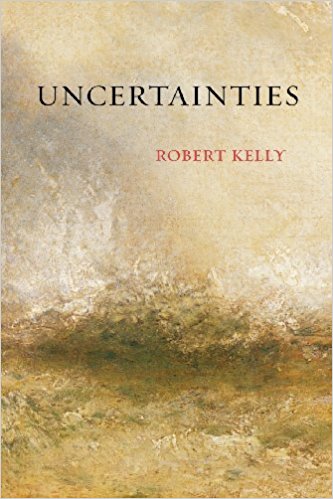
Uncertainties
Uncertainties
Call and response. The breathing body of poetry from the beginning. The psalms of David, the wave of them, rise and fall of plainchant, verse and response. The constantly shifting pause between the half-lines of Old English poetry and the poems of the Edda, the half-lines of the Kalevala swayed out four-handed on the saga bench. So I thought towards the two-line stanza as experiments in duration, in complex syntactic and melodic demands. The melody of the first line necessitates the melody of the next. Shape shaping shape. Formally, the poem engages with one constraint: each line wants to be semantically intact-ideally, any line could stand alone, be my Last Words, my epitaph. Yet it also must link syntactically or narratively with the line that follows. And each stanza must stand in like relation with the stanzas before and after. This requirement extends to line structure something that I’ve worked with for years (usually furtively): hypersyntax, where phrases link with what comes before or after.






Recent Comments